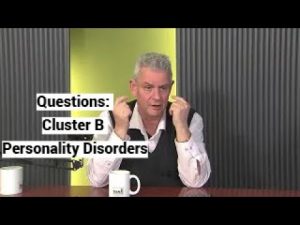1. Differences Between Bipolar Disorder and Borderline Personality Disorder
- Bipolar disorder involves mood cycling that takes weeks to months, with clear manic and depressive phases that are predictable. In contrast, borderline personality disorder (BPD) features very rapid mood swings within hours, which are unpredictable. This unpredictability in BPD means it is impossible to create a reliable theory of the mother’s future behavior, which impacts the child’s sense of security. [00:05 – 04:30]
- The mood disorder in bipolar is the primary clinical feature, while in borderline personality disorder, mood symptoms are secondary and less central. [01:15]
2. Impact of a Bipolar Mother vs. Borderline Mother on Children
- A bipolar mother’s behavior, while extreme during mood cycles, is ultimately predictable, allowing the child to have some expectation of what might happen next. For example, a manic phase is followed by a depressive phase that can last months. [03:00]
- A borderline mother’s behavior is highly erratic and unpredictable due to a failure in mentalization or “theory of mind,” which prevents the child from feeling secure or understanding the mother’s mind. This unpredictability creates a sense of fear and insecurity for the child likened to “a horror movie.” [04:00 – 05:00]
3. Psychological Effects on Children of Dysfunctional Mothers
- Children exposed to dysfunctional, particularly borderline, mothers face a dilemma: recognizing the mother as dysfunctional is terrifying because it threatens their survival sense (food, shelter, protection). Therefore, children often internalize the problem, believing they themselves are “wrong” or the cause of dysfunction. This leads to lifelong issues with self-worth and self-awareness. [06:00 – 08:45]
- The internalization of blame by the child makes it very difficult for them to later accept that the problem lies with the mother, as such acceptance is emotionally threatening and reminiscent of early survival fear. [08:45 – 09:30]
4. Case Reflection on Personal Experience with a Borderline Mother
- The speaker shares a personal reflection that their mother had a strong ability to relate to babies and young children, which may be linked to her own childhood trauma including losing her mother at a young age and suffering multiple traumas before age 20.
- This borderline personality disorder likely developed as a result of those early traumas and lack of help, with family members minimizing her behavior by saying “that’s just how she is,” which contributed to the avoidance of addressing the dysfunction. [10:00 – 12:00]






